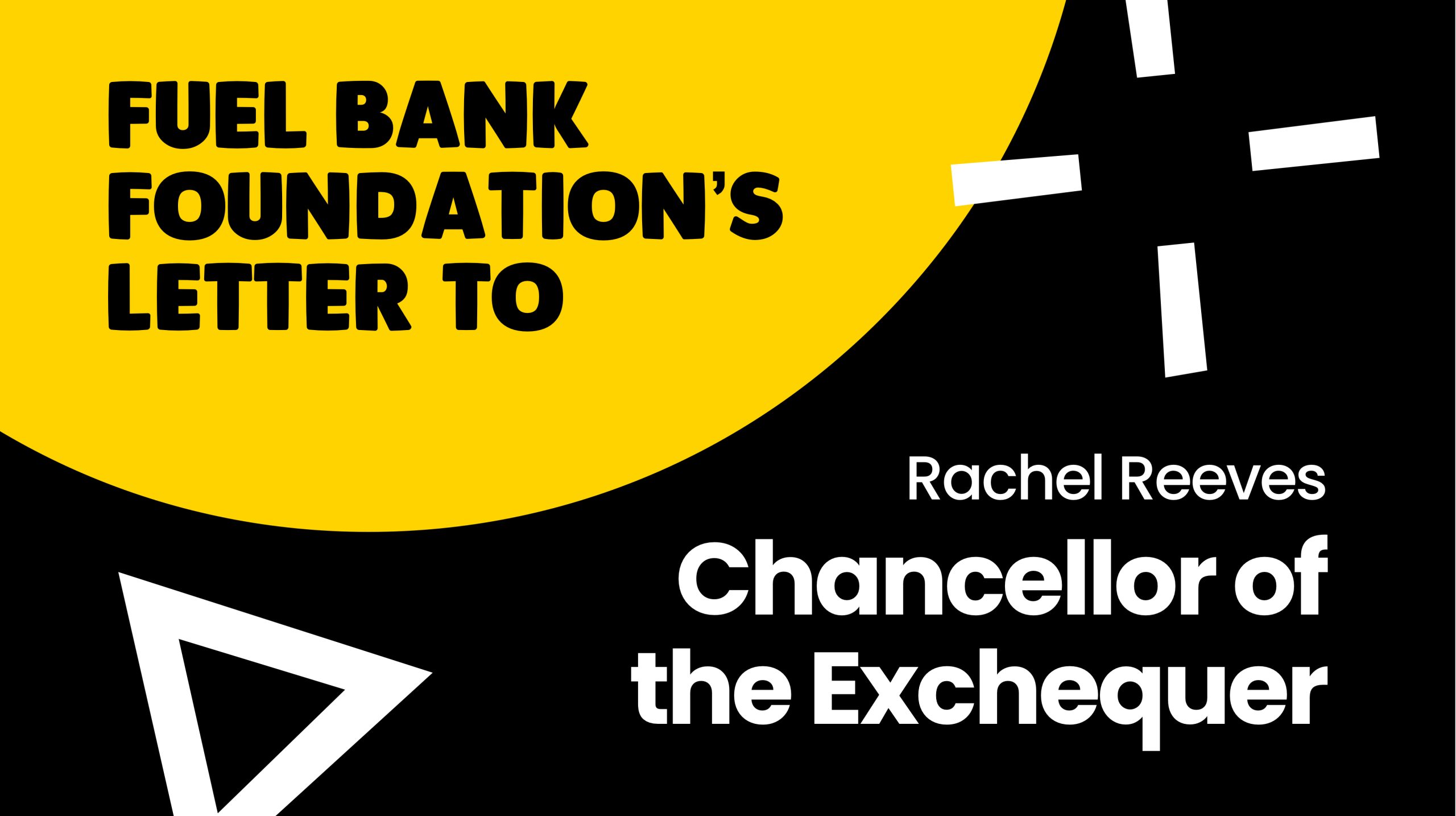On Wednesday, Chancellor Rachel Reeves will stand at the despatch box to deliver her Spring Statement to the nation. It will be the first major update on the economic health of the country since the October Budget.
While it’s not billed as a major economic event, there is widespread speculation the Chancellor is set to announce swinging cuts to Whitehall, regulation and welfare in order to save money.
As a charity that is on the frontline of helping some of the most vulnerable people in society, we see the extreme, and often impossible, financial challenges households are currently faced with.
We also see the impact fiscal policy has on the same households – be it good or bad.
Ahead of the Spring Statement, Fuel Bank Foundation sent an open letter to the Chancellor to provide an insight into the challenges our clients face and to caution against making cuts that will negatively impact the lives of the people we support.
You can read the letter in full below.
Dear Chancellor,
Fuel Bank Foundation helps people in the UK who face living without heat, light and power in their home because they can’t afford to top up their prepayment energy meter or fill their heating oil tank, coal bunker or wood store. We gift them at least ten days’ worth of energy and help them to get back on top of their finances through practicable advice and support, whilst also campaigning for systemic change to solve the problem at its roots.
We believe that if people can stay warm and clean, cook nutritious meals and use essential appliances, they stand a far better chance of escaping poverty and living a happy, healthy life.
However, at a time when the country is facing a number of economic challenges, we understand the dilemma of providing financial support to the millions of people who need it and the necessity to balance the country’s books.
Whilst delivering support to almost two million people, Fuel Bank Foundation has gleaned useful insights into the lives of those we help and the daily challenges they face.
Sadly, choosing whether to eat or heat has become commonplace for many people. More than half (57%) of the people we surveyed last year had to make the choice between having a hot meal or heating their home at least once a week.
Debt is also a big issue for our clients. Fifty-four per cent of people who received emergency financial help from us had to use it to pay down debt on their prepayment meter before they could switch the heat and lights back on. Some were also paying down credit cards that had been used to pay for energy and, more worryingly, loans from unregulated lenders.
Also concerning is that fuel poverty is a multi-generational problem that affects children as much as adults.
Forty-five per cent of the clients we surveyed have children at home. Many of these households are losing access to heat, light, and power multiple times every week. The likelihood is that these children are going to school hungry, possibly wearing unwashed uniforms, and tired after being too cold to sleep. In short, they are being set up to fail in school and later life. This is not only wrong but also desperately sad and a waste of the talent that is needed if we are to grow our economy.
In short, fuel poverty is robbing too many people of their health, happiness and potential to contribute to society. It is also thought to cost the nation tens of billions each year in NHS expenses, care costs, and lost productivity.
Right now, the situation for many people feels desperate. They are more worried now about their finances than they were a year ago, and many have lost hope that things will get better.
We therefore urge the Government to ensure that any decisions it makes ahead of the Spring Forecast don’t create the conditions for fuel crisis to tighten its grip on those already affected or allow it to spread to even more households.
Please also make sure that any potential changes to the benefits system do not increase the desperation of people like our clients but, instead, gives them a chance of a brighter future.
We would love to see the welfare state being based on the principles which underpin our charity – that is, support people when they are in crisis whilst, at the same time, giving them the tools to help themselves.
For more information on our research findings and insight, please see click here.
Yours sincerely,
Matthew Cole,
CEO, Fuel Bank Foundation.





